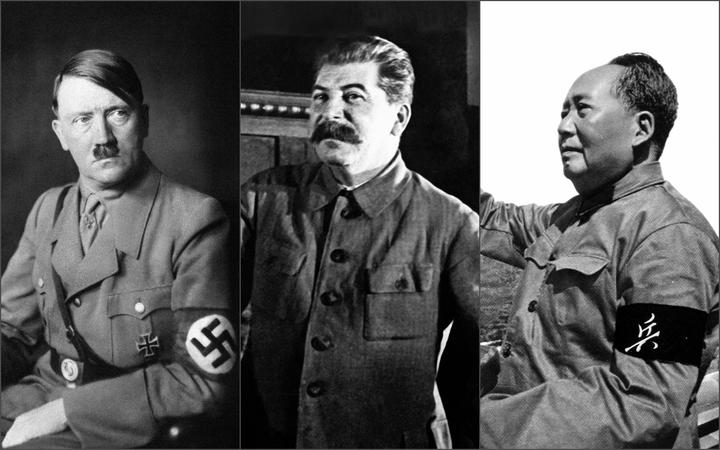Moral reasoning is hard. It’s so hard, in fact, that most people do little moral reasoning. Instead, as Daniel Kahneman would expect, they perform a mental substitution. Rather than wonder, “What’s morally right?,” they ask, “What’s socially acceptable?”
In decent societies, this seems fairly harmless. When your society is even selectively evil, however, the substitution is disastrous. Strictly following standard social norms in Nazi Germany, Stalinist Russia, or Maoist China is murder.
Which brings us to a pressing question: How do you know whether your society is evil? Or to make matters even starker: How hard was it for the average adult in Nazi Germany, Stalinist Russia, or Maoist China to know that their societies were evil? If people can’t readily figure that out on their own, what moral questions can they answer?
My claim: Figuring out that Nazi Germany, Stalinist Russia, and Maoist China are evil is an easy task for almost anyone – including lifelong members of those societies. How so? By applying two principles that a child can understand.
Principle #1: Turnaround. When a child mistreats each other, adults routinely ask the offender something like, “Would it be all right if someone did that to you?” When you’re faced with complex moral hypotheticals, this question won’t get you far. But when you’re wondering, “Is it all right to murder some peaceful but unpopular people?,” you really can fast forward to the right answer just by asking, “If you were a Jew/kulak/money-lender, would it be all right to murder you?”
Principle #2: Bad laws are made to be broken. Virtually everyone in every society regularly breaks the law – and they usually do so with a clean conscience. This is clearly true when the law inflicts great suffering for no good reason. Yet people also routinely break laws simply because the laws are obviously stupid. A few people may claim to “Always follow the law,” but even these stubborn folk spend little time actually studying the laws to ensure they don’t accidentally break one. Neither do they feel guilty about their lackadaisical effort to master the body of laws they’re nominally determined to strictly obey. And since people already break the law to cut a few minutes off their commute, the idea that they should disobey laws ordering the murder of Jews/kulaks/money-lenders is only an intellectual baby step.
None of this means that ordinary people in Nazi Germany, Stalinist Russia, or Maoist China were morally obliged to die as martyrs. However, it does mean ordinary people in these societies could easily figure out that their societies were deeply evil – and they should at least covertly strive to avoid complicity. If they failed to figure that out, it is because they culpably failed to apply moral principles they understood since childhood.
The moral standards for people who actually formed and carried out these policies were, of course, much higher. I’ve quoted Spiderman before and I’ll quote him again: With great power comes great responsibility. Ordinary people have no obligation to devote their lives to the study of moral philosophy and social science. But anyone who wields political power over thousands of human beings – much less millions – absolutely does.




